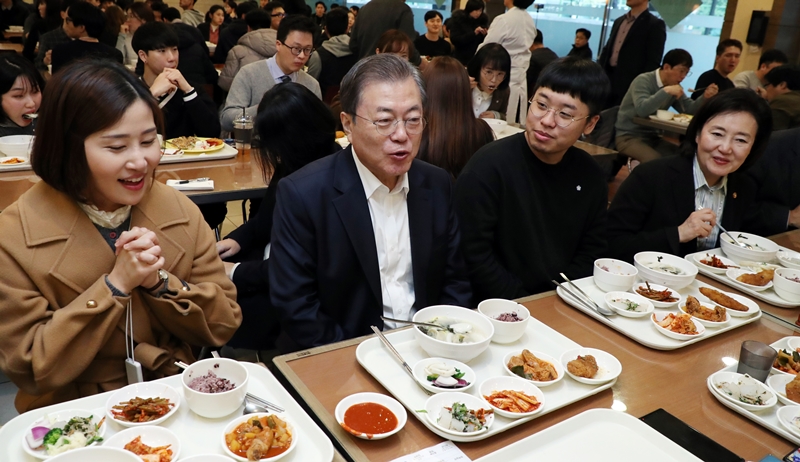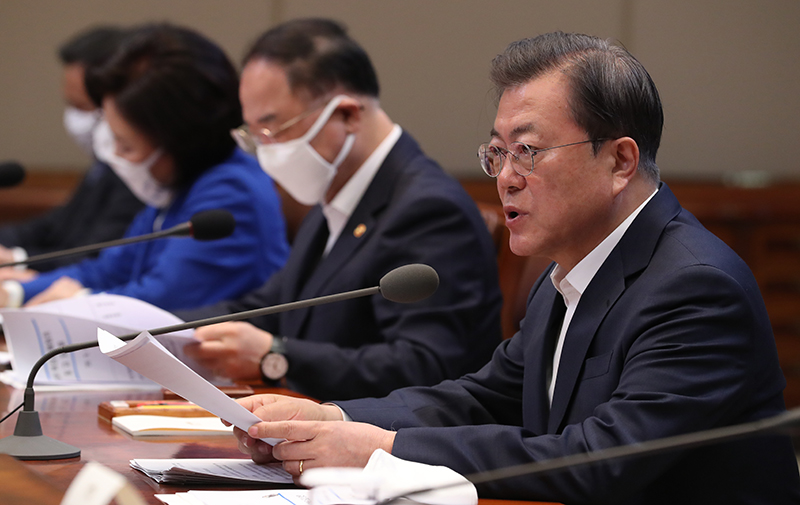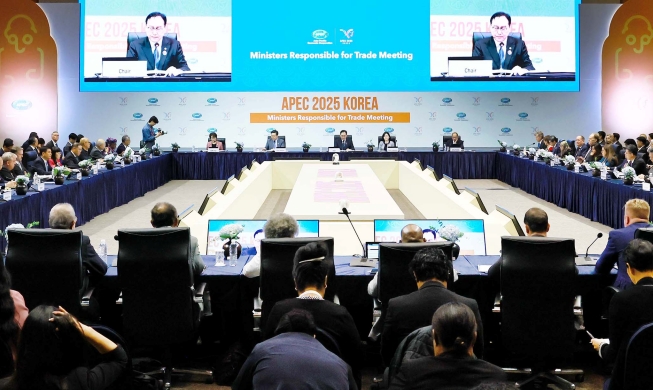
President Moon Jae-in since his inauguration in 2017 has implemented a people-centric policy focusing on a work-life balance. He is shown here on Dec. 17 last year having lunch with workers at Ace High-end Tower in Seoul's Guro Digital Complex.
By Kim Minji
Photos = Yonhap News
"People."
This is the core term describing the focus of President Moon Jae-in's policy under a pledge he made to the nation upon taking office.
At his inauguration ceremony on May 10, 2017, he pledged to allow the people to lead "a decent life," saying, "I will take care of the employment issue first."
Having since repeatedly stressed the concept of work-life balance, he submitted at a plenary session of the National Assembly a bill to reduce the maximum number of working hours per week from 68 to 52. The bill was passed on Feb. 28, 2018.
That same year on March 5, President Moon chaired a meeting on the 52-hour workweek with his senior secretaries. Under the new workweek, he said Korea will no longer be an overworked society with the most weekly working hours among member nations of the Organization for Economic Cooperation and Development, and is taking the first step in achieving a major transformation toward a human life.
He added that the lower number of working hours will serve as an important opportunity to achieve work-life balance and coexistence between work and family.
In the article titled "President Moon Models Work-Life Balance in South Korea" on Oct. 4, 2018, the Washington-based online current affairs magazine The Diplomat lauded President Moon for showing himself on vacation to the public to highlight the importance of work-life balance.
His focus on the people did not stop with reduced working hours. He also took interest in care systems for infants and children and devised policy to allow the people to live in a practical manner.
For example, his administration in July 2018 announced core tasks to make Korea "a happy country for raising children while working." In October 2019, the period of paid maternity leave for spouses was extended to 10 days and the number of working hours during child care was also reduced. And this year in March, he raised from 80% to 100% the payment of wages for single parents on parental leave.

The Moon administration provides financial aid to the people amid the coronavirus pandemic, starting with the underprivileged on May 4. The photo shows President Moon on March 30 announcing plans on financial aid at the Emergency Economic Council at Cheong Wa Dae.
Emphasis on the people has been reflected in President Moon's policy responses to the coronavirus pandemic.
He ordered strict measures for social distancing to stem the outbreak, but stopped short of imposing a draconian nationwide lockdown as done by other countries. To alleviate the shortage of protective face masks and get them to those needing them, his administration implemented a five-day rotation system under which people could buy three masks once a week depending on year of birth. He also showed a determination to provide financial aid to the entire nation.
In an April 2 op-ed, the U.S.-based magazine Foreign Policy lauded President Moon's people-centric policy and the continuous support he received from the people.
"Of course, culture is a real thing that guides people's actions," it said. "Ultimately, South Korea’s success is thanks to competent leadership that inspired public trust."
kimmj7725@korea.kr
